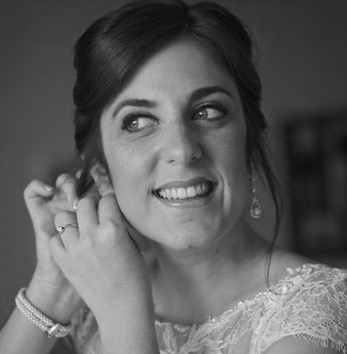On March 12, Stav Shaffir, a first-time Knesset Member from the Labor Party, joined Women of the Wall in prayer at the Western Wall. Despite threats from several Orthodox groups and attempted arrests by police, the group prayed.
Shaffir, 27, also led the national struggle for economic rights during summer 2011. She sat down for an interview for the Israelife blog at jewishjournal.com last week. This is an edited version of the full interview, available at jewishjounal.com/israelife.
Jewish Journal: Why did you join Women of the Wall?
Stav Shaffir: This struggle is not only about the equal right for women to pray. It is a much wider struggle, which symbolizes our fight for the freedom of religion in Israel — our freedom to live how we want to live, with our own beliefs and our own personal way of practicing Judaism or other religions. It is about how and where we choose to pray, but also about every other aspect of our lives. Nowadays, marriage, women’s rights and the most intimate, important choices of our lives are all in the hands of a small and powerful group within Judaism — the Orthodox, which many times doesn’t see, or is not respectful enough, of other forms of practices.
This situation also has the unfortunate, less-notable side effect of pushing people away from Judaism. The Judaism we know here in Israel is mostly Orthodox. This causes many women to feel discriminated [against] in this specific culture. For many, the Orthodox practice is considered extreme, andwhen the general perception is that this is the only Jewish life possible, many people step further away from the Jewish religion and culture.
One of the things that makes Israel special is that we can live a Jewish life without necessarily having to live a religious life. Judaism is everywhere here, from our educational system to our national holidays. Everything here is the outcome of Judaism, mostly its cultural aspect. The moment all the Jewish streams are being sucked by one very small stream, there is a problem. It pushes people away from their own religion and sometimes from the Jewish culture and legacy.
JJ: So you believe state and religion should be separated?
SS: I don’t believe we need to strip the Orthodox stream from its power, but to simply provide more power to the other streams as well and create a true democracy.
JJ: What were the reactions you received after joining Women of the Wall?
SS: Reactions came from both sides. Many asked me: “You are not religious, so why were you wearing a tallit?” This question is very hard for me, because what I felt there, during the service, was incredible. It was very powerful, empowering and moving to stand there with these wonderful, courageous women.
Hearing negative remarks on what I did made me realize it is all a misconception of religion and the definition of who is religious and who is secular. I mean, we each believe in our own way. This is what religion truly is — each person does whatever he or she feels in his or her heart.
JJ: In summer 2011, you led what can only be referred to as a revolution. You and your partners made hundreds of thousands of people get up from their seats and protest in the streets for social justice. Do you think that the struggle for a true freedom of religion is the next revolution in Israel?
SS: I think it can be one of the main issues to capture the public’s attention, but a true change depends on the involvement, both of the Knesset’s as well as the public’s ability to get up and join. But I think it is definitely possible, yes. We have a very indecisive government, and I really have no idea how the various parties will react to the matter of civil marriage. I think there is a place for a true, meaningful discussion.
JJ: And is there a chance for a true change?
SS: Definitely, because there is no other choice. … In his speech in Israel, President [Barack] Obama said, “Speaking as a politician, I can promise you this: Political leaders will not take risks if the people do not demand that they do.” I think this is very true. We lit a match with Women of the Wall, a struggle for a thorough change they’ve been leading for a long time now. It created a public discussion, which must grow and spread, and if it will lead to a demand from the public, it will lead to a governmental change.























 More news and opinions than at a Shabbat dinner, right in your inbox.
More news and opinions than at a Shabbat dinner, right in your inbox.